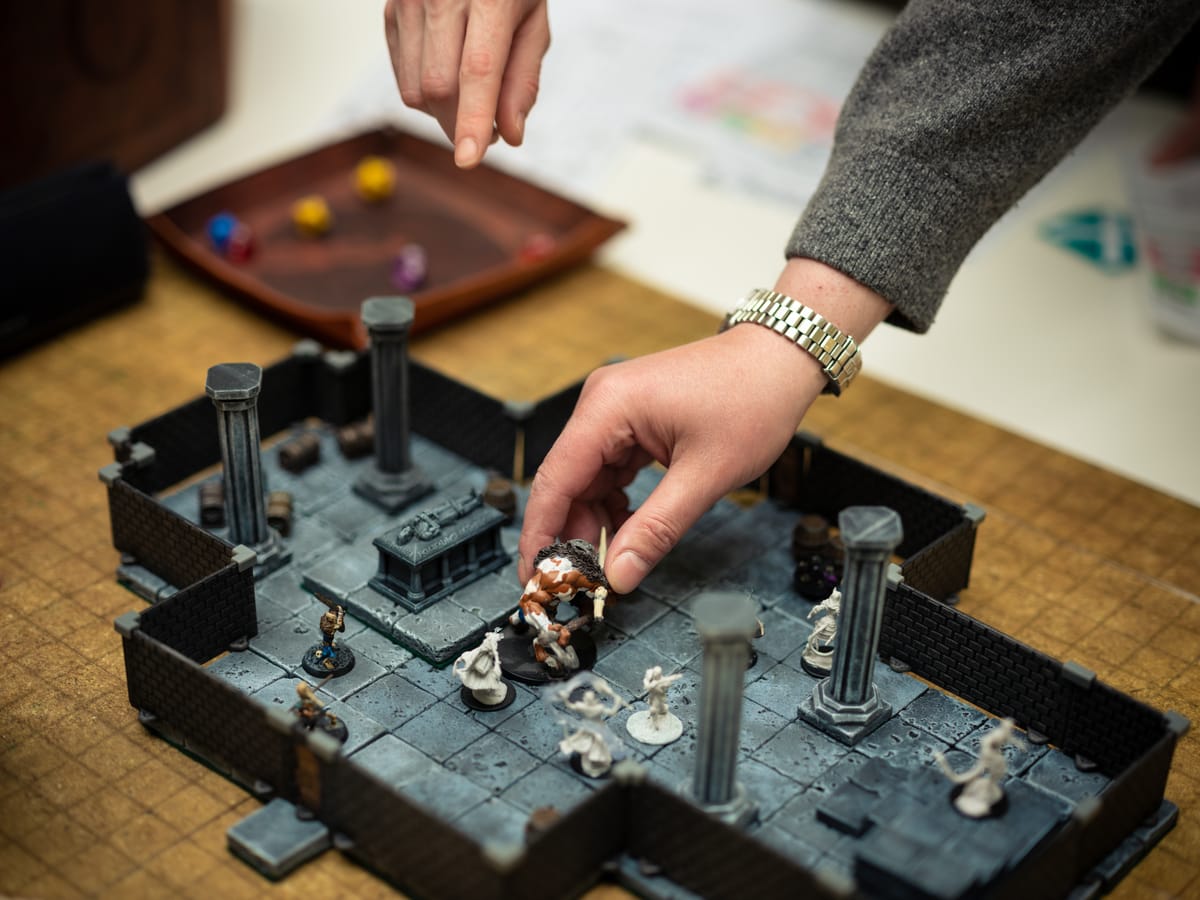
Mental health issues and roleplaying games haven’t always enjoyed the best of relationships. If it wasn’t the subject being treated -let’s be generous and say- somewhat less than delicately by games themselves, it was angry groups convinced that Dungeons & Dragons was a one way trip to the asylum, just stopping off for a spot of casual devil worship on the way.
These days, however, roleplaying games are being seen in a much more positive light. Teachers are making use of games like Dungeons & Dragons in their classrooms and more and more mental health professionals are researching how RPGs can, in fact, be used as a powerful therapeutic tool.
One organisation doing just that is Game Therapy UK, winners of last year’s inaugural Ian Livingston Award for Innovation in Games, and whose mission is to pursue ‘an innovative, evidence-based approach to address social isolation, trauma and aid recovery’ through the use of roleplaying games.
Whilst expressive therapies such as art or drama therapy are now fairly well established and backed up by years of research, the use of roleplaying games hasn’t, at least in the UK, received as much attention, something that Doctor Gary Colman, one of the group’s co-founders is looking to change.
A former army medic and now general practitioner, who specialises in working with the homeless and alongside NHS drug and alcohol treatment teams, Dr Colman also has several decades experience of delving dungeons to his credit. He’s long believed in the mental health benefits of games.
‘Our model starts out from the principle that all games are potentially therapeutic,’ he explains. ‘If you look at it from an evolutionary point of view we've developed as playful animals. Look at other complex intelligent animals, whether it's dogs or wolves or other communal animals, they use play for training, to improve their brains and to manage social interactions.
‘Now humans, we’re incredibly communal and incredibly cooperative and we play throughout our lives. I've just walked my puppy and you can see how playful they are, but as they get older they lose that. Humans, we stay playful right until the end, and I think that's why games are therapeutic. We're hardwired to play them, they’re necessary for us to function as humans. Part of being human is to play, in the same way that we're hardwired to make art. I think we suffer when we don't do these things.’
Doctor Colman sees the benefits of games as far reaching when it comes to improving mental health from combating loneliness and reducing anxiety to cognitive improvement through problem solving and overcoming obstacles. When he began researching the subject he found that there were already lots of little projects being run by occupational therapists, psychologists and educators spread all across the UK, but with little to no coordination and no support. Game Therapy UK then was set up to help provide structure, funding and support for those working in this field and to help build a solid core of evidence as to the benefits of gaming.
‘We have three aims of charity,’ he explains. ‘One is to provide these projects for these different groups of people who may benefit from them. That's probably our main aim. Then the projects that we do, we want them to be evidence based. We want to be able to say “look this works” and be able to show the best practice that we found. So we have an academic faculty, we're working with several universities and researchers, and all of our projects are being fed into this and there will be a journal of therapeutic gaming, where people can publish peer reviewed, robust articles.
‘Then finally the third thing is education, training. So we’ll provide teaching. We'll provide high quality CPD level training, or even postgraduate training. That's that's the ambition.’
So far the organisation has been involved in projects in London helping people who have experienced homelessness, survivors of modern day slavery and military veterans, people who have often suffered multiple, complex traumas. Now with more funding secured Game Therpay UK are looking to expand their operations around the country and are in the process of setting up several new projects that are focused on the needs of young people.
‘So right now we're looking at projects for young people, autistic young people, young people with special educational needs,’ Doctor Colman says. ‘We think we've got some projects for young people experiencing homelessness, possibly one for young people who live in a care home setting and we’re also looking at some projects for young people with a gender identity issues. So those would be our project for this year.
It takes around a year to set up each project and make sure it’s being run in the best possible way but they are already looking ahead to the possibility of working with incarcerated adults and people with cognitive impairment and dealing with conditions like dementia.
‘There's a huge number of projects we’d like to run. It's really just limited by governance,’ he explains. ‘We can only provide governance to so many projects and set up so many projects at one time safely. So right now we're just limited by that.’
We’ve clearly come a long way from the dark days of the Satanic Panic, hopefully -thanks to the efforts of organisations such as Game Therapy UK- that progress will continue and more people will be able to benefit from an improved understanding of the therapeutic benefits of gaming.
For more information on Game Therapy UK and to sign up to their newsletter go to game-therapy.co.uk
This feature originally appeared in Wyrd Science Vol.1, Issue 6 (August '24)

